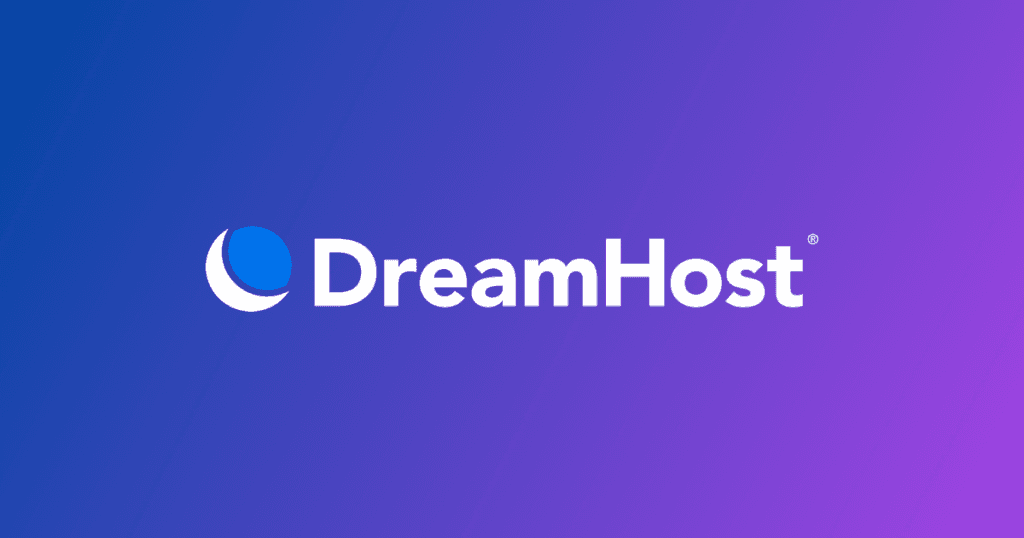2025 SiteGround vs DreamHost vs. Hostinger: Who is the winner?

Choosing the right web hosting provider is a critical decision for anyone looking to build a website, especially when it comes to performance, affordability, and SEO positioning. In this detailed comparison, we’ll dive deep into SiteGround, DreamHost, and Hostinger, three popular hosting providers, to evaluate their features, pricing, speed, support, and how they impact keywords and search engine rankings. Whether you’re a blogger, small business owner, or developer, this guide will help you decide which host aligns best with your needs in 2025.
Overview of SiteGround, DreamHost, and Hostinger
Before we get into the nitty-gritty, let’s briefly introduce each contender:
- SiteGround: Known for its premium performance, excellent customer support, and WordPress optimization, SiteGround is a favorite among businesses and developers who prioritize speed and reliability.
- DreamHost: A veteran in the hosting world, DreamHost offers affordable plans with unlimited bandwidth and a strong emphasis on WordPress hosting, appealing to budget-conscious users.
- Hostinger: A rising star, Hostinger provides ultra-affordable hosting with impressive speed and features, making it ideal for beginners and small websites aiming for cost-efficiency.
Now, let’s break down how these hosts compare across key factors, focusing on how they influence SEO positioning and keyword performance.

1. Pricing and Value for Money
Cost is often the first consideration, but value matters just as much when optimizing for SEO and site growth.
- SiteGround: Starts at $2.99/month (StartUp plan) for one website, 10 GB storage, and 10,000 monthly visits. Renewal prices jump significantly (e.g., $17.99/month), which might strain budgets over time. However, premium features like daily backups and advanced caching justify the cost for performance-driven sites.
- DreamHost: Begins at $2.59/month (Shared Starter) for one website and 50 GB storage, with unlimited bandwidth. The Shared Unlimited plan ($3.95/month) offers unlimited websites and storage. Its 97-day money-back guarantee is a standout perk, and renewal rates remain reasonable.
- Hostinger: Kicks off at $2.99/month (Premium plan) with 100 GB SSD storage, unlimited bandwidth, and support for 100 websites. Renewal rates are lower than SiteGround’s, making it a budget-friendly long-term option.
Winner: Hostinger takes the lead for affordability and scalability, offering more storage and website support at a lower entry price. For SEO positioning, its low cost allows reinvestment in content and keywords, while SiteGround’s higher pricing suits those prioritizing premium features.
2. Performance and Speed (Critical for SEO)
Site speed is a major SEO ranking factor, directly affecting user experience and keyword performance. Faster load times can boost your site’s visibility on search engines.
- SiteGround: Built on Google Cloud infrastructure, SiteGround delivers exceptional speed with an uptime of 99.98% and a response time averaging 215 ms. Its SuperCacher technology and NGINX servers optimize dynamic content, making it ideal for high-traffic sites targeting competitive keywords.
- DreamHost: Offers solid performance with SSD storage and a 100% uptime guarantee (though real-world tests show 99.9%). Response times hover around 300–400 ms, slightly slower than SiteGround but still respectable. Its caching is less advanced, which may impact SEO positioning for speed-sensitive sites.
- Hostinger: Powered by LiteSpeed Web Servers, Hostinger achieves load times as low as 769 ms in tests with optimized themes. Its uptime averages 99.9%, and built-in LiteSpeed Cache enhances performance, giving it an edge for keyword rankings on a budget.
Winner: SiteGround edges out for raw speed and reliability, making it the best choice for SEO positioning where every millisecond counts. Hostinger is a close second, offering near-comparable performance at a fraction of the cost.

3. SEO-Friendly Features
Beyond speed, hosting features like SSL, CDN, and uptime play a pivotal role in SEO and how search engines rank your keywords.
- SiteGround: Includes free SSL, Cloudflare CDN integration, and daily backups. Its WordPress-specific tools (e.g., SiteGround Optimizer plugin) enhance Core Web Vitals, a key SEO metric. Multiple data center locations (US, Europe, Asia, Australia) reduce latency for global audiences.
- DreamHost: Provides free SSL, unlimited bandwidth, and a custom control panel. While it lacks a built-in CDN, it supports Cloudflare integration. Its focus on WordPress optimization helps with keyword performance, though caching options are less robust than SiteGround’s.
- Hostinger: Offers free SSL, unlimited bandwidth (on higher plans), and a free CDN with premium plans. LiteSpeed Cache is a standout, optimizing page speed and Core Web Vitals for better SEO positioning. Data centers span multiple continents, ensuring low latency.
Winner: SiteGround excels with its comprehensive SEO toolkit, particularly for WordPress users targeting high-ranking keywords. Hostinger’s LiteSpeed advantage makes it a strong contender for budget-conscious sites.
4. Ease of Use and Control Panel
A user-friendly interface saves time, letting you focus on content and keyword optimization rather than wrestling with technical setups.
- SiteGround: Features a custom Site Tools dashboard that’s intuitive and beginner-friendly. WordPress installation is seamless, and tools like staging and Git integration appeal to developers fine-tuning SEO strategies.
- DreamHost: Uses a proprietary control panel that’s simple but text-based, lacking the polish of cPanel or SiteGround’s interface. It’s functional for basic tasks but may feel clunky for advanced SEO management.
- Hostinger: Employs hPanel, a sleek, custom-built interface that rivals cPanel in usability. One-click WordPress setup and AI-powered website builder options make it a breeze for beginners optimizing for keywords.
Winner: Hostinger’s hPanel wins for its modern design and accessibility, though SiteGround’s Site Tools is a close second for power users focused on SEO positioning.
5. Customer Support
Reliable support ensures quick resolution of issues that could harm your site’s uptime and SEO performance.
- SiteGround: Offers 24/7 support via live chat, phone, and tickets, with near-instant response times. Its knowledgeable team excels at resolving WordPress and SEO-related queries, earning high praise.
- DreamHost: Provides 24/7 support through live chat and email, but lacks phone support. Response times can be slower, which might delay fixes affecting keyword rankings.
- Hostinger: Delivers 24/7 live chat and email support in multiple languages, with responses typically under 3 minutes. While effective, it’s less specialized than SiteGround for complex SEO issues.
Winner: SiteGround stands out for its fast, expert support, crucial for maintaining SEO positioning during technical hiccups.

6. Scalability and Hosting Options
As your site grows and keyword traffic increases, your hosting needs to scale efficiently.
- SiteGround: Offers shared, cloud, and reseller hosting, with cloud plans starting at $100/month. It’s ideal for scaling high-performance sites but comes at a premium.
- DreamHost: Provides shared, VPS, cloud, and dedicated hosting. Its unlimited bandwidth and storage make it flexible for growing sites targeting broad keywords, with affordable upgrades.
- Hostinger: Includes shared, VPS, cloud, and specialized plans (e.g., Minecraft hosting). Its low-cost VPS options suit sites outgrowing shared plans without breaking the bank.
Winner: DreamHost wins for cost-effective scalability, though SiteGround shines for performance-driven growth tied to SEO success.
SEO Positioning and Keywords: Which Host Wins?
When it comes to SEO positioning, speed, uptime, and features like SSL and CDN integration are non-negotiable. Here’s how each host impacts your keyword strategy:
- SiteGround: Its superior speed, Google Cloud backbone, and WordPress optimization make it the top choice for competitive keywords and high-ranking sites. Ideal for businesses or blogs where SEO is a priority.
- DreamHost: Solid uptime and unlimited bandwidth support steady keyword performance, but its slower speeds and basic caching limit its edge in search rankings.
- Hostinger: Lightning-fast LiteSpeed servers and affordable plans make it a powerhouse for SEO on a budget, perfect for small sites or startups targeting niche keywords.
Final Verdict
- Best for Premium Performance and SEO: SiteGround. If you’re chasing top-tier speed, support, and SEO positioning for a professional site, SiteGround’s premium features are worth the investment.
- Best for Budget Scalability: DreamHost. Affordable plans with unlimited resources make it great for growing sites targeting broad keywordswithout breaking the bank.
- Best Overall Value: Hostinger. For unbeatable pricing, solid speed, and SEO-friendly features, Hostinger is the go-to for beginners and small businesses.

Ultimately, your choice depends on your budget, technical needs, and SEO goals. SiteGround excels for performance-driven keyword rankings, Hostinger dominates for value, and DreamHost strikes a balance for scalability. Pick the one that aligns with your vision, and watch your site climb the search engine ladder!
Note: This post contains affiliate links. Clicking and buying may earn me a commission at no extra cost to you, supporting my work and free content.
Ms contenido sobre hosting aqui
